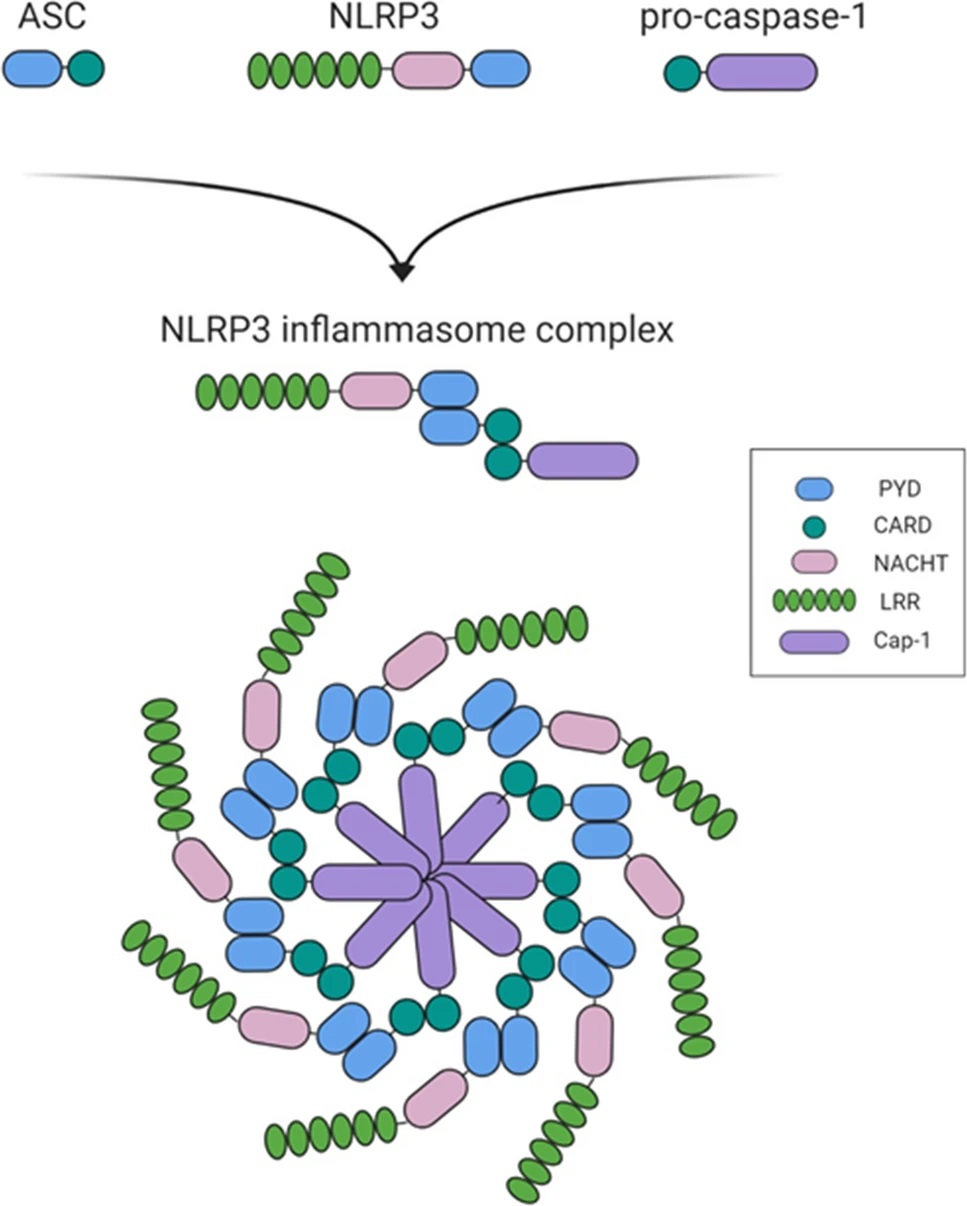Inflammasomes are a type of protein complex that plays a key role in the innate immune response to infection. They are composed of a variety of proteins, including cytokines, receptors, and enzymes. When activated, inflammasomes induce the production of pro-inflammatory cytokines and promote the clearance of pathogens.
There are three major types of inflammasomes: NLRP1, NLRP3, and AIM2. Each type is activated by different stimuli and has unique functions. For example, NLRP1 is activated by bacterial toxins and plays a role in inflammation and tissue repair. In contrast, NLRP3 is triggered by viral infections and helps to clear viruses from cells. AIM2 is activated by DNA damage and promotes cell death in response to infection.
While inflammasomes are critical for protecting the body from infection, they can also be detrimental if dysregulated. Excessive or uncontrolled activation of inflammasomes has been linked to autoimmune diseases such as Crohn’s disease and psoriasis. Therefore, it is important to understand how inflammasomes work in order to develop targeted therapies for these conditions.


